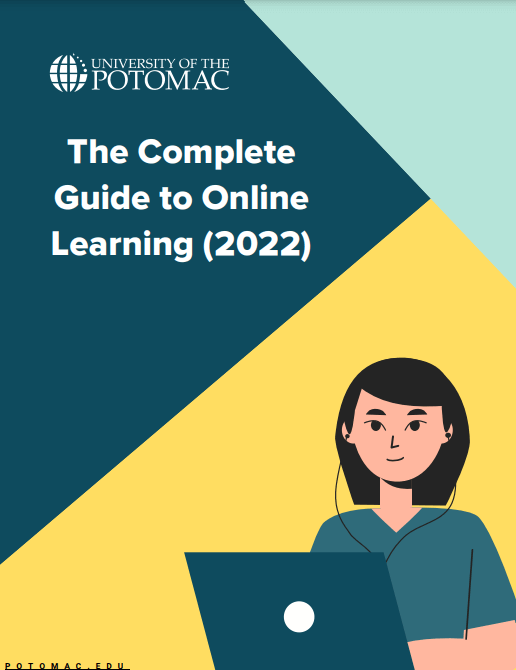Academic qualifications — you might be sure you want to pursue one or the other, but do you know which one is most suitable for you, or, whether there are differences between them to know of.
Since it’s not uncommon for students to mix them up and get lost in the terminology, let’s explore what each of them means and what they can do for you in the long term.
Certificate vs. Diploma vs. Degree
When it comes to the complicated world of certificates, diplomas, and degrees, they often leave us wondering which would be the right choice. It isn’t that one is better or worse than the other, and their own uniqueness should be the deciding factor for us. Whether it’s cosmetology, business management, or artificial intelligence that you want to know more about, there are many different educational pathways to go after. Knowing the differences between them will surely prove to be helpful in your decision. At the end of the day, our ruling has to favor the direction in which we want our career to go. There are some key characteristics that divide these academic awards, so, let’s get to their definitions.
What is a Certificate?
Certificate programs are normally shorter postsecondary academic awards. They usually last anywhere from a few months to 3 years maximum. They can be undergraduate programs or graduate programs, with graduate programs always requiring a following bachelor’s degree.
An undergraduate certificate program is ideal for those who want to take classes that are related to each other, whether in terms of their theme or focus (academic or technical). Students can opt for an undergraduate certificate program while concurrently pursuing a bachelor’s degree or as an alternative to an undergraduate degree. On the other hand, those who already have a bachelor’s degree can opt for a graduate certificate. Those who enroll in a graduate certificate program do so for different reasons, among which are: wanting a competitive advantage, career change, etc.
Certificate programs: pros and cons
In order to compile a list of pros and cons for a certificate program, we must compare it to another program, e.g., a degree program.
Compared to a degree program, a certificate program is superior in these aspects:
- Time of completion – Compared to a degree program, one can complete a certificate program in a shorter amount of time.
- Cost of the program – Because a certificate program is shorter than a degree program it naturally costs less.
- Flexibility – A certificate program gives students more flexibility when finishing the program.
Compared to a degree program, a certificate program is:
- More limited – A certificate degree is more specific, as opposed to a graduate degree that gives students a more varied and balanced education. And, as might be expected, a certificate can not land you higher positions as say, a master’s degree may.
What is a Diploma?
Diploma programs are also postsecondary awards and more times than not awarded by colleges and technical schools, rather than universities. They’re generally longer than certificate programs. Compared to a degree program, a diploma program takes less time to complete. Obtaining a diploma is a great way to gain specialized skills in your chosen profession.
What is a Degree?
Degrees are awards given upon the completion of a longer (starting from 2 and up to 6 years, depending on the program) course, which is commonly known to be more expansive and far-flung. One can obtain a degree from a university or college and at a few different levels (undergraduate, graduate, and postgraduate).
Types of degrees and their characteristics:
1. Associate’s degree – This is an undergraduate level degree that one can obtain in two years and is equal to 60 credit hours.. An associate degree program equips students with the foundational skills and knowledge in a specific discipline. Those who pursue an associate’s degree do so to prepare for their Bachelor’s studies or to obtain the degree as an additional qualification. If you decide to pursue an associate’s degree, there are four types you can choose from:
- AA- Associate of Arts
- AS- Associate of Science
- AAA-Associate of Applied Arts
- AAS- Associate of Applied Science
2. Bachelor’s degree – It’s also an undergraduate level degree. Compared to an Associate’s degree, a bachelor’s degree generally takes twice as long to complete (four years), and is worth twice as many credit hours (120), and is naturally more expensive. A bachelor’s degree is often the minimum requirement education-wise for many professions. Some universities offer part-time bachelor’s programs as well as in-person and online classes. There are three types of bachelor’s degrees:
- BA- Bachelor of Arts
- BS- Bachelor of Science
- BFA- Bachelor of Fine Arts
3. Master’s degree – This is an advanced or graduate-level degree. A full-time master’s program takes approximately two years to complete and is worth between 30-64 credit hours. Students who pursue a master’s degree do so to gain specialized knowledge and advance in their careers. One can obtain a master’s degree in a plethora of fields, among which are:
- Health administration
- Business administration
- Public administration
- Education
- Science
4. Doctorate degree – This is an advanced or postgraduate degree, and most commonly, the highest degree qualification in a certain field. To obtain a doctorate degree you need to complete anywhere between 90 and 120 credit hours, or four to eight years. Those who pursue a doctorate degree are usually interested in careers in academia, i.e., university professor or research. There are two main types of doctorate degrees: academic and professional. They are further divided into:
- PhD-Doctor of Philosophy
- DBA- Doctor of Business Administration
- EdD- Doctor of Education, etc.
Certificate vs. Diploma
Certificate programs and diploma programs can be very similar and oftentimes provide identical areas of study. Despite the resemblance, a certificate program will generally be shorter and can be completed in a matter of months. As a result, it requires fewer credits.
On the other hand, a diploma program takes about two years to finish. As such, it tends to gravitate towards a more thorough approach to a specialized subject.
While both diploma and certificate programs are career-focused, their availability differs. Despite some exceptions, diploma programs are not easily found online, as they have a heavier coursework load. Certificate programs are more likely to be painless to work around, flexible and come with a substantial amount of online options. And if you’ve already finished a degree program, it can easily serve as a great add-on to your skills.
Interested in pursuing a degree?
Fill out the form and get all admission information you need regarding your chosen program.
This will only take a moment.
Message Received!
Thank you for reaching out to us. We will review your message and get right back to you within 24 hours.
If there is an urgent matter and you need to speak to someone immediately you can call at the following phone number:
- We value your privacy.
Jobs you can get with a diploma
- Practical Nursing
- Software Developer
- Legal Office Assistant
- Accounting Assistant
- Data Scientist
- Motorcycle Repair Technician
- Floral Designer
- Cybersecurity
- Certified Personal Trainer
Certificate programs
- Biblical Studies
- Web Development
- Criminal Justice
- Project Management
- General Business
- Marketing
- Global Health
- Sports Management
- General Management
Diploma vs. Degree
Yes, with so many academic pathways and awards to choose from, it can get confusing and you can lose sight of what you’re really after and what differs them. For diplomas versus degrees, the determining factor should be the career you want to pursue and the costs you are capable of paying.
While keeping in mind that some of the employers today might favor a degree, vocational education is still called that for a reason. There are jobs where not only will a diploma be of more use, but your student loans will be significantly reduced, too. Maybe jobs in engineering, healthcare, science and such may not care much for a diploma, but a job that relies solely on skill might praise you for it.
A diploma program focuses on one subject, explores it and is commonly practice-based. However, a degree program is far-reaching and often more likely to be theory-based. Both of these programs have their own dos and don’ts, proving to be very worthy in the right hands and the right field. And whenever you feel like one isn’t for you, you have the opportunity to change paths. However, if that happens often, it can be costly and mentally tiring. So, work wisely and strategically lean onto your own strengths,
Degree vs. Certificate
Again, as with the diploma vs. degree dilemma, this one also depends on the job you want to land. A degree program can provide you with a higher pay upon completion, more than a finished certificate program can do. But, that also comes with the fact that getting a degree will be more costly than getting a certificate.
Depending on whether you’re opting for an undergraduate or graduate certificate, there are different and similar ups and downs to them. The main difference we count between a degree and a certificate is the duration, job opportunities, and cost.
Time commitment
Not all of us have the advantage and luxury of focusing solely on education. If you’re looking for a fast-forward and effective way into the work industry, a certificate can get you there. Be it a grad or undergrad, both of which intend to gear you up with professional skills specialized on a certain subject. And if you’re already scraping for time as it is, then a certificate program brings online classes to the table. Although degree programs have been introducing online options too, making them more accessible, they continue to require a more rigid timeline for completion. Whereas an online certificate program is easier to complete and fit into a busy schedule.
Price
When it comes to the price, the astounding difference in cost is enough reason to lead some into a certificate program. While certificate programs start at 4,000$, but no more than 10,000$, getting a degree can cost you anywhere from 30,000$ and upwards annually. Both of these programs provide financial aid programs, though not everyone is eligible.
Employability
What you’ll learn from each of these will be a deciding factor in your employability. The coursework and their targets differ, not only between them but between different subjects. And, while a certificate program may be time and cost-effective, it also has a fewer number of classes, therefore teaches you only general and base knowledge.
Degree programs tend to focus on both the academic and educational side, spreading around a wider array of study. Furthermore, some employers tend to favor degrees in general and don’t prioritize skills. Sometimes a degree can prove more useful, and sometimes a certificate will open pathways you desired, it’s up to you to decide which one is for you.
Any higher education program you decide to pursue has its own quirks, much like anything else. The decision you make should be yours and yours only, and not a hasty one. Although you have the possibility of changing direction in almost any of these courses, the better thought-out your choice is, the easier it will be. So hop on the thinking train!
FREE RESOURCE

Download Our Free Guide to Online Learning Now!









